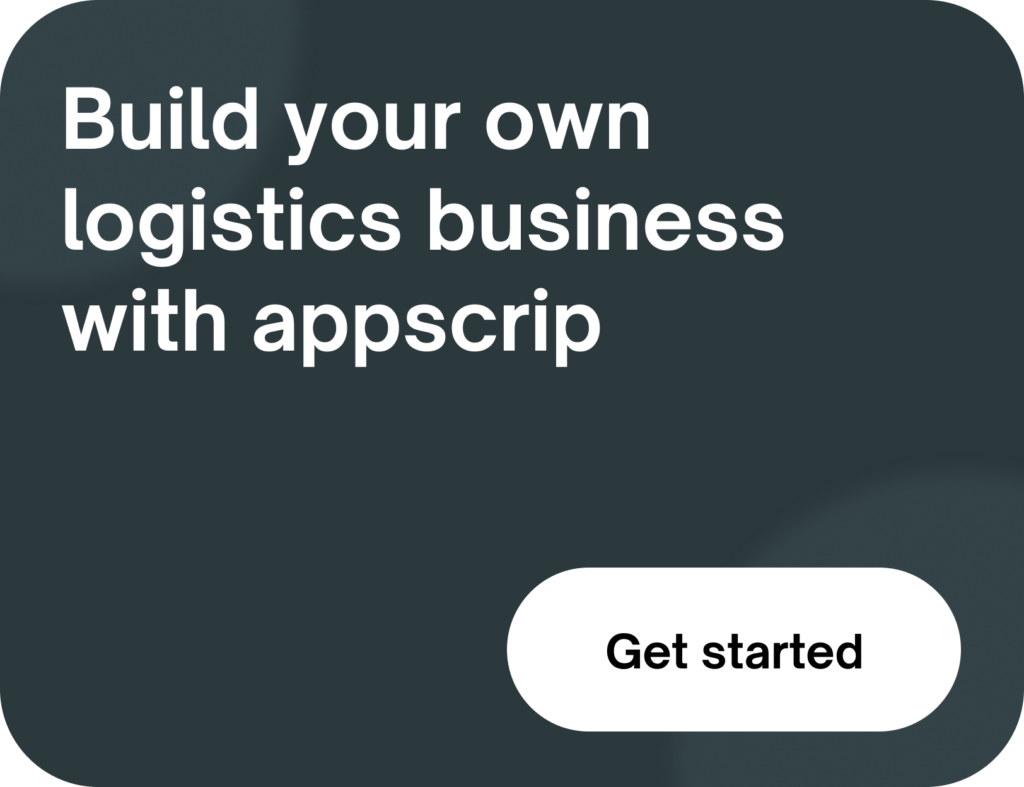Freight brokerage, a sector within the larger field of logistics, plays a critical role in the movement of goods across the nation and around the world. A freight broker acts as a connecting link between shippers who have cargo to transport and carriers who have the capacity to move that cargo. In essence, freight brokerage involves coordinating transportation for products from one point to another.
In recent years, the online freight brokerage business has seen a significant shift toward digitalization. The rise of the online freight broker business has transformed the traditional landscape, opening up new opportunities, and introducing fresh challenges. This article serves as a comprehensive guide to mastering this digital frontier and successfully starting your online freight brokerage business.

Understanding the Online Freight Brokerage Business
The online freight broker business, as the name suggests, is an internet-based extension of the traditional freight brokerage business. It leverages the power of digital technology to connect shippers and carriers more efficiently, negotiate rates, track shipments, and streamline the overall logistics process.
In the online freight brokerage model, brokers use web-based platforms and software to manage their operations. This digital approach allows them to reach a wider market, operate 24/7, and offer more competitive rates. Furthermore, it gives them instant access to real-time data, enabling them to make more informed decisions and respond quickly to changes in the market.
Advantages of Starting an Online Freight Brokerage Business
Starting an online freight brokerage business presents a plethora of opportunities and advantages.
- It enables access to a vast network of clients and carriers globally, transcending geographic limitations. This global reach significantly enhances the opportunities for growth and expansion, opening up a larger market share.
- A significant advantage is the potential for excellent revenue. With the right strategies and business relationships, an online freight brokerage can enjoy a high profit margin due to lower overhead costs associated with online businesses.
- The incorporation of technology tools enhances efficiency and productivity. Digital platforms and software can streamline processes, improve communication, and provide real-time tracking and updates. This not only improves service but also reduces the risk of errors and delays.
- An online freight brokerage business allows for the building of a robust network of industry relationships. These relationships can lead to volume discounts, exclusive deals, and a more reliable and diverse pool of carriers. This, in turn, can translate into better service for customers, solidifying the company’s reputation in the market.
Steps to Set up an Online Freight Brokerage Business
Starting an online freight brokerage business involves a series of strategic steps that ensure your venture’s legality, efficiency, and profitability. Here’s a step-by-step guide:
Gain Industry Experience and Research: Before starting a freight brokerage, it’s crucial to understand the industry. Working in logistics, shipping, or a related field provides practical knowledge about the operation of the freight business. Simultaneously, studying the industry’s trends, challenges, and key players is crucial for informed decision-making.
Freight Broker Training: There are numerous freight broker training programs available online. These programs equip you with the necessary skills, including negotiation, organization, tracking, and management of freight processes. A solid understanding of contracts, rates, and legal transportation requirements is also essential.
Business Registration: Like any other business, a freight brokerage must be properly registered. This involves choosing a unique business name, registering it with the appropriate local or national bodies, and obtaining necessary permits. This legalizes your operation and adds credibility to your business.
Business Plan Development: A solid business plan outlines your business’s mission, objectives, and strategies. It includes a market analysis, marketing and sales strategy, financial projections, and organizational structure. This not only provides a roadmap for your business but also helps in securing funding if necessary.
Carrier Identification: The success of a freight brokerage lies in the reliable carriers it partners with. Use load boards to post your loads and search for trucks with a good reputation. Establish relationships with dependable carriers willing to transport freight.
Obtain a Freight Broker License: A freight broker license from the Federal Motor Carrier Safety Administration (FMCSA) is compulsory. This involves submitting a completed application, paying a fee, and maintaining a surety bond. The license ensures your compliance with all legal and regulatory requirements.
Setting up Online Presence: Since the business is online, you need a robust digital infrastructure. This includes a user-friendly website, a secure online payment system, and a reliable customer relationship management (CRM) system. These tools enable efficient operations and improve customer experience.
Marketing and Client Acquisition: Use digital marketing strategies such as SEO, social media marketing, and email marketing to reach potential clients. Additionally, build relationships with businesses that regularly require freight services.
Continuous Evaluation and Improvement: Regularly assess your business performance against your set objectives. Use customer feedback and data to identify areas to improve and implement required changes. This ensures your business remains competitive and profitable.

Factors Influencing the Cost to Start a Freight Brokerage Business
Freight brokerage business comes with a range of costs and expenses, influenced by several factors. Initially, you must apply for your Broker of Property license from the Motor Carrier Safety Administration or the equivalent of your country. The application process involves using the Unified Registration System and the fee is $300. This is a standard cost that every aspiring freight broker must bear.
Another significant expense is the freight broker bond or trust. The bond costs an annual premium of $1,500 to $3,000, while the trust mandates brokers to fund it with their money. The exact cost of the bond depends largely on credit and can range from $938 to $9,000 annually, with a premium of up to 12% for those with bad credit.
One of the key factors affecting the cost is the size and scope of your business. For instance, if you’re conducting your business from a rented office space, you will need to factor in the rent as well. Similarly, the cost of equipment can range between $6,000 and $20,000, depending on the size of your operations.
Additional costs include insurance, loadboards, and transportation management systems. These can cost several thousand dollars per year, depending on your company’s size and coverage. Insurance policies, for example, can cost $1,500 per year or more. However, they are optional.
Finally, managing cash flow is a crucial part of running a freight brokerage. The cash flow requirement is influenced by the volume of business and the gap between paying carriers and receiving payment from customers. Factoring companies can be used to manage cash flow, but they charge a percentage of the revenue.
Conclusion
Starting an online freight brokerage business can be a rewarding venture, offering the potential for financial success, professional growth, and personal satisfaction. However, it requires careful planning, ongoing effort, and a willingness to adapt to changing circumstances.
As the digital age continues to evolve, the freight brokerage industry is likely to see further changes and opportunities. These could include increased automation, the use of artificial intelligence and machine learning, and the development of new business models.









